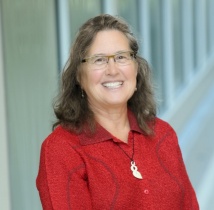News
» Go to news mainSCSD prof joins the fight for basic income in Nova Scotia
Although the number of COVID-19 cases have drastically decreased over the past few months in Nova Scotia, that does not mean the job market has fully recovered. Even before the virus, people across Canada were suffering from financial instability, due to the fact that their income is not enough to provide for basic living necessities.
That is why now more than ever people have been calling on the Canadian government to institute a ‘basic income’ so that nobody becomes destitute or feels financially insecure. One of these advocates in the fight for a basic income is Elizabeth Kay-Raining Bird.
 Dr. Kay-Raining Bird is a professor in the School of Communication Sciences and Disorders and child language development and disorders is her area of expertise.
Dr. Kay-Raining Bird is a professor in the School of Communication Sciences and Disorders and child language development and disorders is her area of expertise.
But how does a professor in communication science become involved with basic income?
“I came to be involved in basic income through a friend who was involved in the Basic Income Canada Network and the advisory group there. And she was recruiting other people of like minds to participate. It was about seven years ago that I was first introduced,” she said.
The more Dr. Kay-Raining Bird learned about basic income, the more it seemed like it was just common sense to have one. It’s about providing everyone with a base income which can support their basic needs.
"This to me seems like a human right, we all have the right to have our basic needs met. As someone who is interested in child development, it is very clear that children who are living in poverty are impacted developmentally by the lack of resources that supports their basic needs and that’s just unacceptable as far as I’m concerned.”
More recently the organization Basic Income Nova Scotia has become part of a larger coalition across Canada called Coalition Canada Basic Income. Dr. Kay-Raining Bird and her associates have been working with other like-minded groups to try to implement basic income in Canada through the network as well.
One of the biggest recent steps that she felt was a good idea on the government’s part, was the creation of the CERB in response to the pandemic. She pointed out how the government was recognizing holes in the social support network and trying to fill these holes.
Dr. Kay-Raining Bird explained that, “Because CERB was implemented, the government developed a mechanism for applying for CERB and getting it to people fairly rapidly, and the government identified a level of income that was considered necessary to meet people's basic needs,”. This went a long way to moving Canada along the path towards a basic income.
She also points out that many people have argued, since the pandemic began, that CERB should be transitioned to a basic income. This has included a letter writing campaign to urge Members of Parliament, the Prime Minister, Finance Minister, and Deputy Minster, to implement a permanent basic income.
“Some of the pushes in that regard include, initially, a letter that was signed by more than 50 senators in Canada, urging the government to transition from CERB to a basic income. And that was followed fairly rapidly by letters from other groups as well. There was a letter signed by many Anglican and Lutheran ministers calling for a transition. There was a letter signed by many health professionals, another signed by a number of academics, another signed by over a million youth across Canada and one signed by many, many artists,” she said.
It is extremely important that everyone should be able to meet their basic needs and have the proper support to live happy and health lives. Dr. Kay-Raining Bird is working hard to make this a reality in Canada.
Learn more:
Recent News
- Applications open for Leon & Rose Zitner Prize
- Practicing what we preach: The importance of leisure and recreation for those who study, teach and work in health
- Dal Health announces new Associate Dean, Equity and Inclusion
- New Director announced for College of Pharmacy
- PhD in Health candidate recognized for her innovation in cancer research
- Dal Health’s School of Nursing to offer Atlantic Canada’s First Master of Nursing, mental health and addictions
- Dr. Catherine Mah is taking aim at social impacts on food purchasing and diet
- Faculty of Health research project finds creative culmination in Nocturne 2023 exhibit
